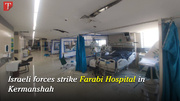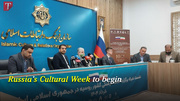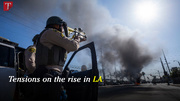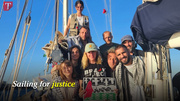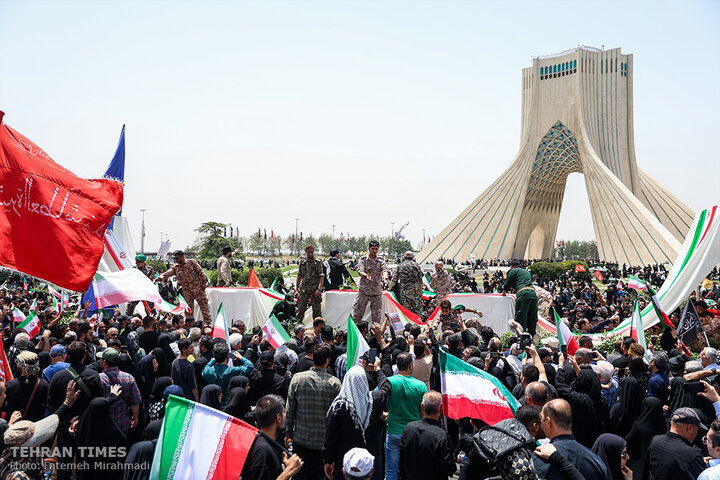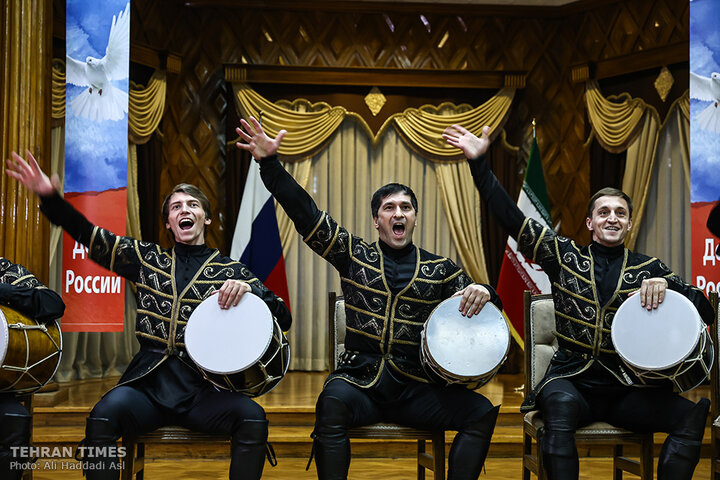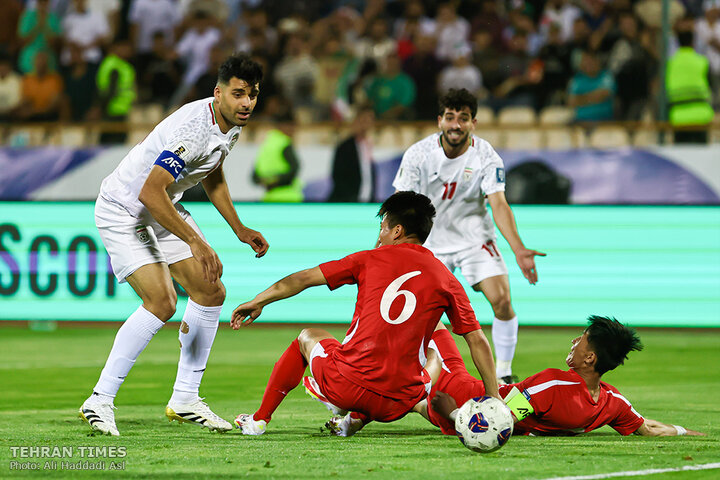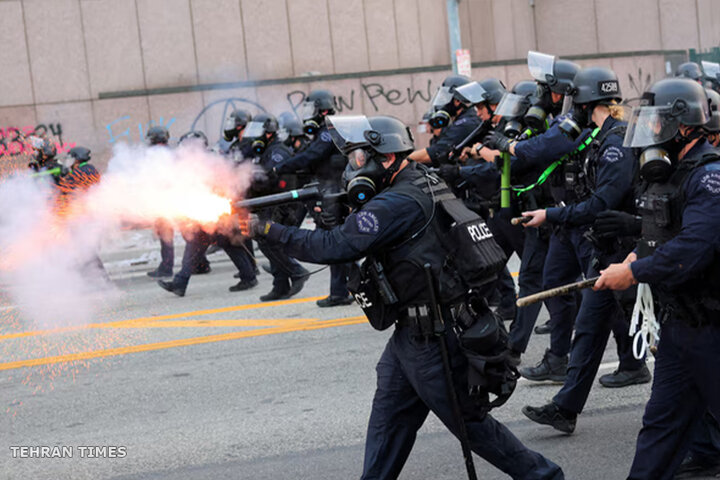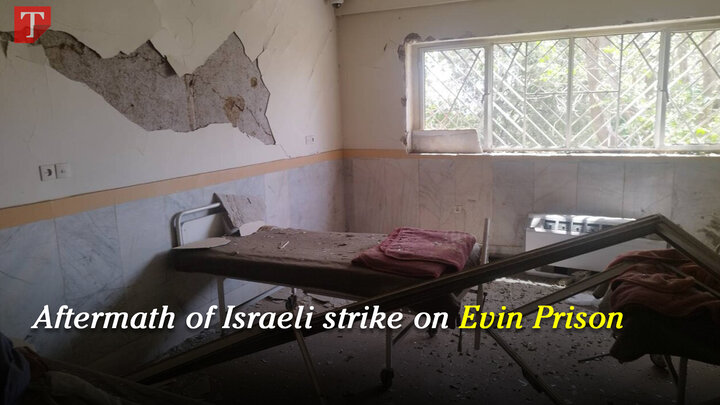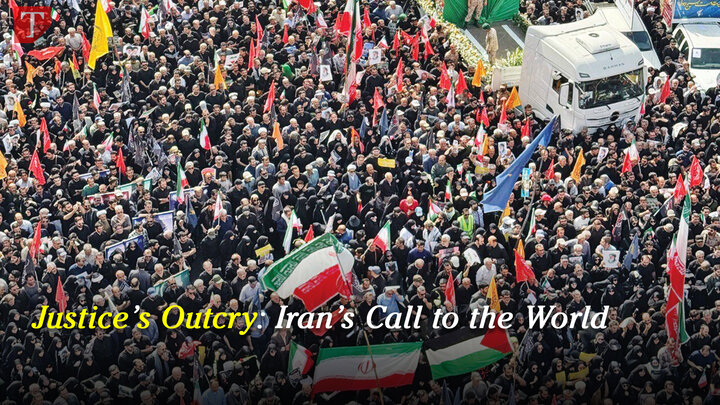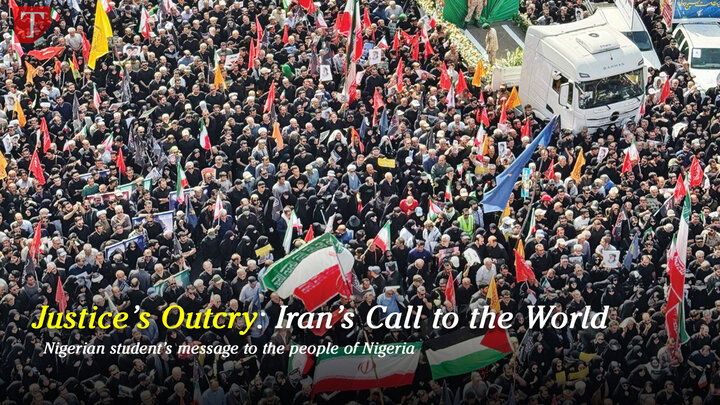-
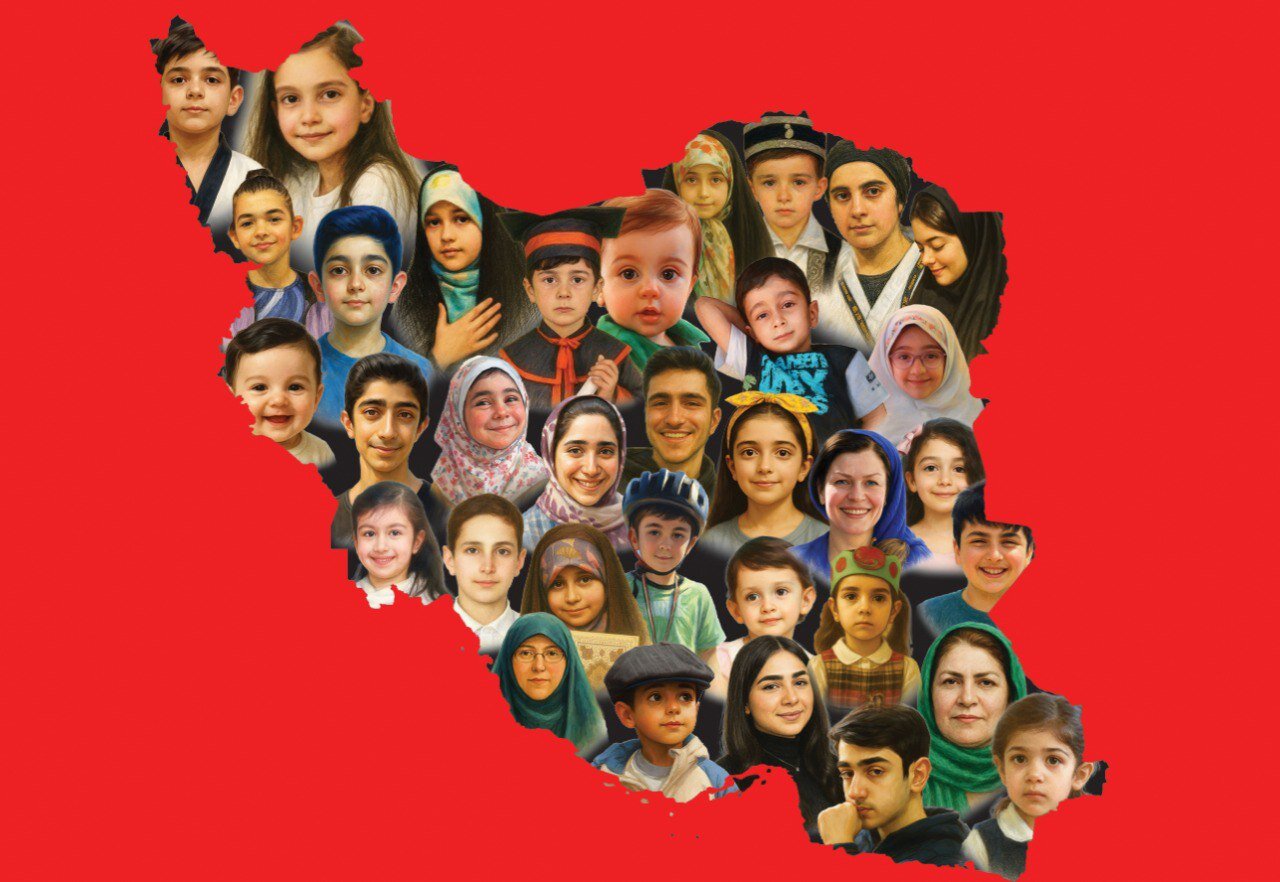 2025-06-30 21:32
2025-06-30 21:32
By Soheila Zarfam
They are not numbers
Judiciary declares 935 Iranians killed during Israeli aggression, including 102 women and 38 children
TEHRAN - The toll of Israel’s unprecedented and unwarranted aggression against Iran is still unfolding in the country, with new forensic data showing an increase in the number of people who lost their lives during the 12-day war.
-
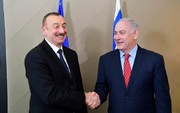
Did Azerbaijan help Israel’s war against Iran?
Baku rejects allegations, but reports show investigation is needed
TEHRAN – Throughout the Iran-Israel war, and in the days following the cessation of hostilities, considerable attention has focused on the Republic of Azerbaijan and its potential role in the regime’s aggression against Iran.
-
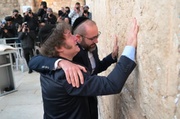
By Farank Saleh
The AMIA case: When the roles of murderer and victim are reversed
TEHRAN – Since Javier Milei came to power in January 2024, Argentina’s government has made a stark shift in its international relations policy, abandoning its traditional stance of neutrality and multilateralism in favor of aligning with the Zionist regime and the United States.
-

Religious outcry grows as West escalates rhetoric against Ayatollah Khamenei
TEHRAN – In response to escalating threats from U.S. President Donald Trump and senior Israeli officials against the Leader of the Islamic Revolution, Grand Ayatollah Seyyed Ali Akbar Hosseini Haeri, a senior Marja and prominent religious authority based in Najaf, issued a Fatwa declaring that any assault on Ayatollah Seyyed Ali Khamenei would be regarded as an attack on the entire Islamic world and met with severe consequences.
-
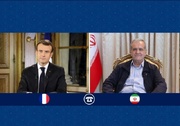
IAEA’s double standards threaten regional and global peace, Pezeshkian tells Macron
TEHRAN — In a scathing rebuke of the UN nuclear watchdog, President Masoud Pezeshkian declared Iran’s suspension of cooperation with the International Atomic Energy Agency (IAEA) a “natural reaction” to Director General Rafael Grossi’s “biased, unconstructive, and destructive conduct,” which paved the way for Tel Aviv’s June 13 aggression and subsequent U.S. strikes on its civilian nuclear facilities.
-
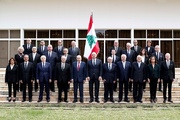
By Sondos Al-Asaad
Why is Washington pressing Lebanon to put Hezbollah weapons to vote in cabinet?
BEIRUT — Israel’s Channel 14 revealed a U.S. plan that “is not unlikely to materialize” to drag Arab and Islamic countries into normalization with the Israeli entity within a year at the latest.
Politics
-
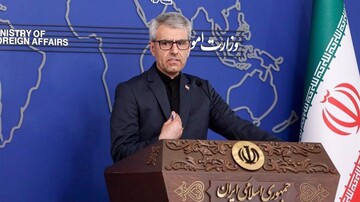
Negotiations are meaningless under current conditions: Iran Foreign Ministry
TEHRAN – Iran says the negotiations with Europe are futile under the current conditions, urging European nations to reassess their conduct.
-
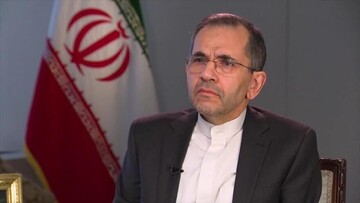
Iran says it reserves right to peaceful uranium enrichment
TEHRAN – Iran’s Deputy Foreign Minister has ruled out any possibility of halting uranium enrichment, insisting the country will continue to develop its nuclear program within the framework of international law and for peaceful purposes.
-
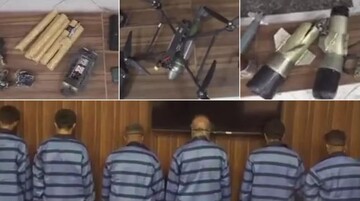
Iran establishes special courts to prosecute Mossad agents
TEHRAN – As Iran carries out a nationwide manhunt to catch mercenaries and spies working for the Zionist regime, the country’s judiciary has ordered the immediate establishment of special courts across the country to prosecute the relevant detainees.
Sports
-
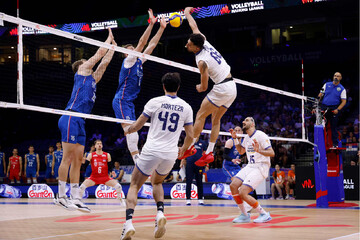
VNL 2025: Iran’s youngsters make their mark
TEHRAN - The Iranian national volleyball team have demonstrated a balanced and promising performance in the first two weeks of the 2025 Volleyball Nations League (VNL). With a young roster and the absence of some seasoned stars, Team Melli’s results reflect both the challenges of rebuilding and the potential for a bright future.
-
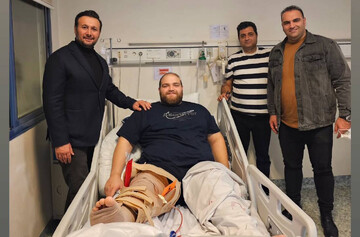
Weightlifter Yousefi to miss 2025 Solidarity Games
TEHRAN – Iranian super heavyweight weightlifter Alireza Yousefi will not participate in the sixth edition of the Islamic Solidarity Games in 2025.
-
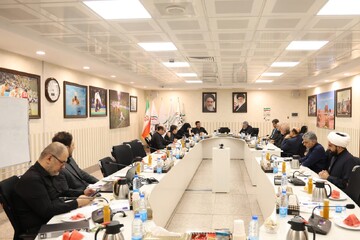
Iran’s slogan for Asian Youth Para Games 2025 unveiled
TEHRAN – Iran’s National Paralympic Committee (NPC) has announced the team’s official slogan for the Asian Youth Para Games 2025.
Culture
-
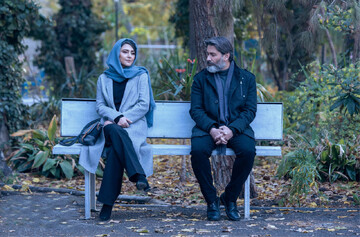
Iranian actors Parsa Pirouzfar, Hoda Zeinolabedin win awards at Cinema Jove
TEHRAN - The 2024 Iranian drama romance television miniseries “At the End of the Night” directed by Ida Panahandeh has won two awards from the 40th Valencia International Film Festival - Cinema Jove, which was held in Spain from June 19 to 28.
-
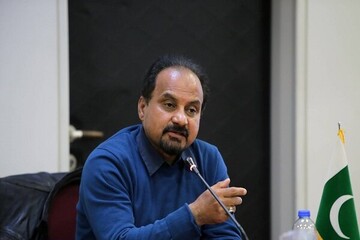
Pakistani poet condemns Israel’s actions, emphasizes cultural security
TEHRAN – In a recent statement reflecting on Israel’s strikes on Iran, Pakistani poet and scholar Ali Kumail Qazalbash highlighted the nature of Israel and emphasized the importance of cultural and diplomatic approaches to resolving disputes.
-
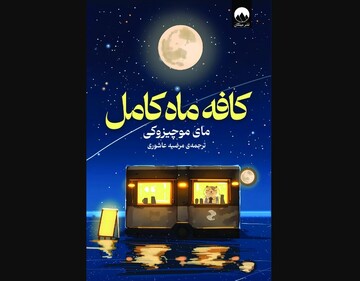
“The Full Moon Coffee Shop” at Iranian bookstores
TEHRAN – A Persian translation of Japanese author Mai Mochizuki’s “The Full Moon Coffee Shop” has recently been published by Milkan Publications in Tehran.
Economy
-

Iran rises to 9th place among global steel producers: WSA
TEHRAN – Iran has moved up to ninth place among the world’s top steel producers, surpassing Brazil, according to the latest report by the World Steel Association.
-

Iran says foreign trade remains stable amid regional tensions
TEHRAN – Iran’s foreign trade activities remain on track despite recent regional tensions, with no interruptions to services for traders and exporters, the head of the Trade Promotion Organization (TPO) said on Monday.
-
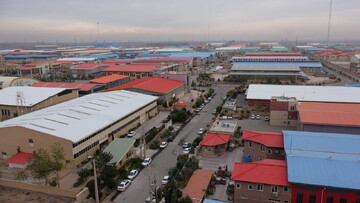
Iran’s industrial parks stay operational amid 12-day conflict with Israel
TEHRAN - Despite Israeli airstrikes damaging nine industrial parks during a 12-day conflict, Iran kept all its industrial parks operational, according to Reza Ansari, head of Iran's Small Industries and Industrial Parks Organization (ISIPO).
Society
-
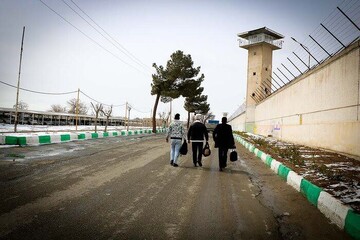
Nationwide campaign aims to free 17,000 prisoners in Muharram
TEHRAN – A nationwide campaign was launched on June 27, the beginning of the month of Muharram, aiming to help release 17,000 prisoners of intentional crimes.
-

‘Nature, the silent part in wars’
TEHRAN –Nature is part of our community, but unlike people, it is silent, and this silence is the most dangerous sign of its suffering, an official with the Department of Environment has said.
-
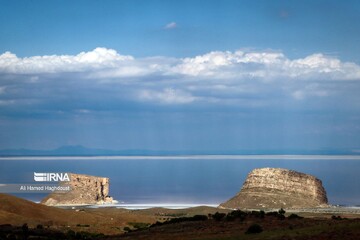
Lake Urmia water level shrinks by 51cm yr/yr
TEHRAN – The current water level of Lake Urmia stands at 1270.09 meters, indicating a fifty-one-centimeter decline compared to the same time last year.
Tourism
-
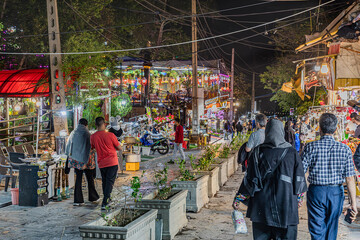
Cool escapes from Tehran's summer heat: destinations to visit
TEHRAN - As the summer sun blazes over Tehran, many residents and visitors alike search for refreshing retreats to escape the heat.
-
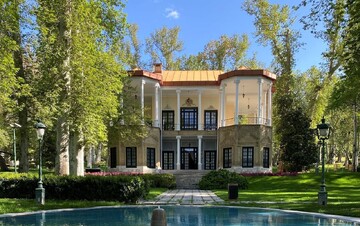
Virtual tours now available for Niavaran Cultural-Historical Complex
TEHRAN - In response to the current closure of historical sites in Iran, the Niavaran Cultural-Historical Complex has launched a free 360-degree virtual tour, allowing users to explore the historic palace and its museums from anywhere in the world.
-
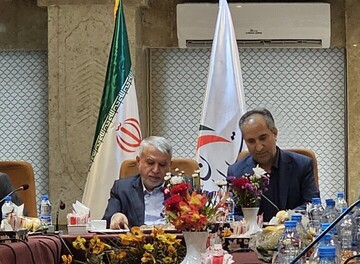
Tehran hotels shelter 1,100 people affected by war
TEHRAN—Some 13 hotels in Tehran accommodated 1,100 people affected by Israeli attacks, said the hoteliers in a gathering with Tourism Minister Reza Salehi-Amiri in Tehran.
International
-

Why is Washington pressing Lebanon to put Hezbollah weapons to vote in cabinet?
BEIRUT — Israel’s Channel 14 revealed a U.S. plan that “is not unlikely to materialize” to drag Arab and Islamic countries into normalization with the Israeli entity within a year at the latest.
-

Israel suffers more casualties
TEHRAN – Palestinian resistance forces have started more deadly operations against the Israeli occupation forces in Gaza.
-
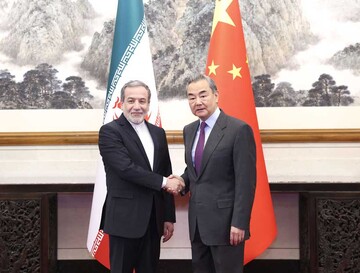
Elite diplomacy and the Iran–China strategic partnership
SHANGHAI - In the third decade of the 21st century, West Asia and the broader international politics are undergoing rapid and profound transformations. The Ukraine crisis, escalating tensions in West Asia, the twelve-day war between Iran and Israel, and the aggressive policies of the Trump administration—including the attack on Iran’s nuclear facilities and the tariff war—are all part of this dynamic landscape.
Most Viewed
-
Fatwas draw a red line: No tolerance for threats against Ayatollah Khamenei
-
Turkish Airlines to resume flights to Iran on June 30
-
Grossi not satisfied with extent of damage to Iran’s nuclear sites!
-
Fox News fabricates story to justify Evin prison massacre
-
Four takeaways from Shamkhani’s first interview after surviving Israeli terrorist attack
-
15087
-
Iranian Sunni scholars urge Islamic unity against Western and Zionist aggression
-
Iran’s oil exports to China hit record high in June
-
Elite diplomacy and the Iran–China strategic partnership
-
Israel's war sought rapid overthrow of Iran's government: Leader’s aide
-
Tehran doubts Israeli commitment to truce, warns of stronger retaliation if provoked
-
A transnational uprising: Humanity stands with Gaza and Iran
-
Did Azerbaijan help Israel’s war against Iran?
-
Lebanon is a strategic threat to Israel
-
Syrians reject Israeli “aid”

